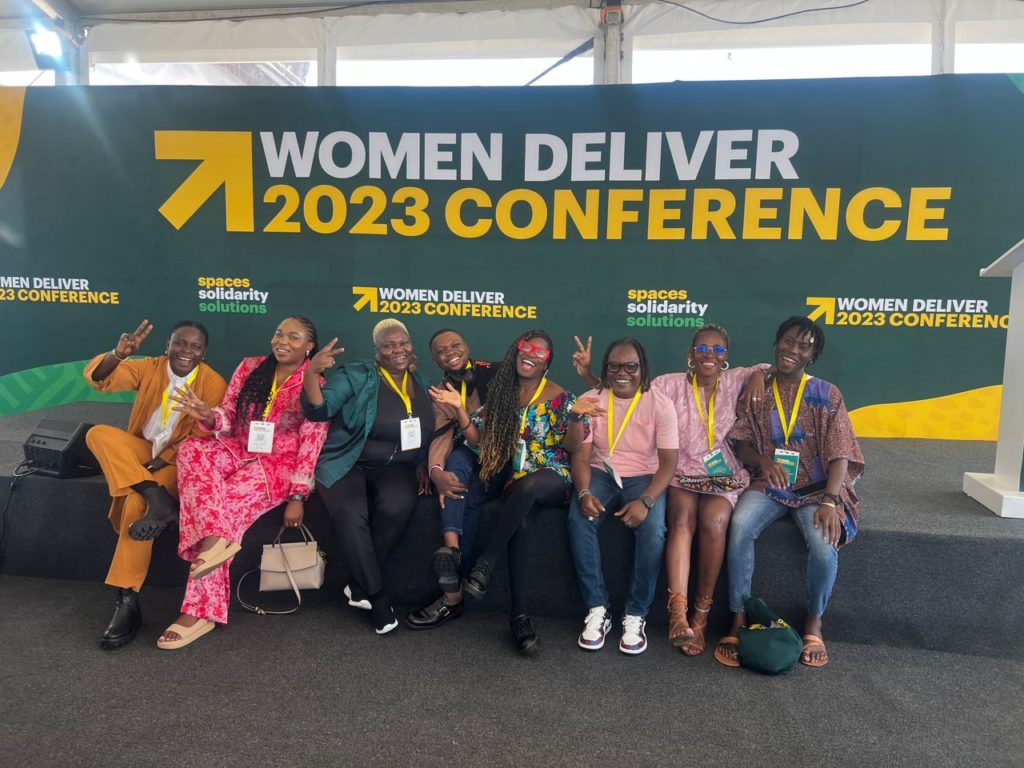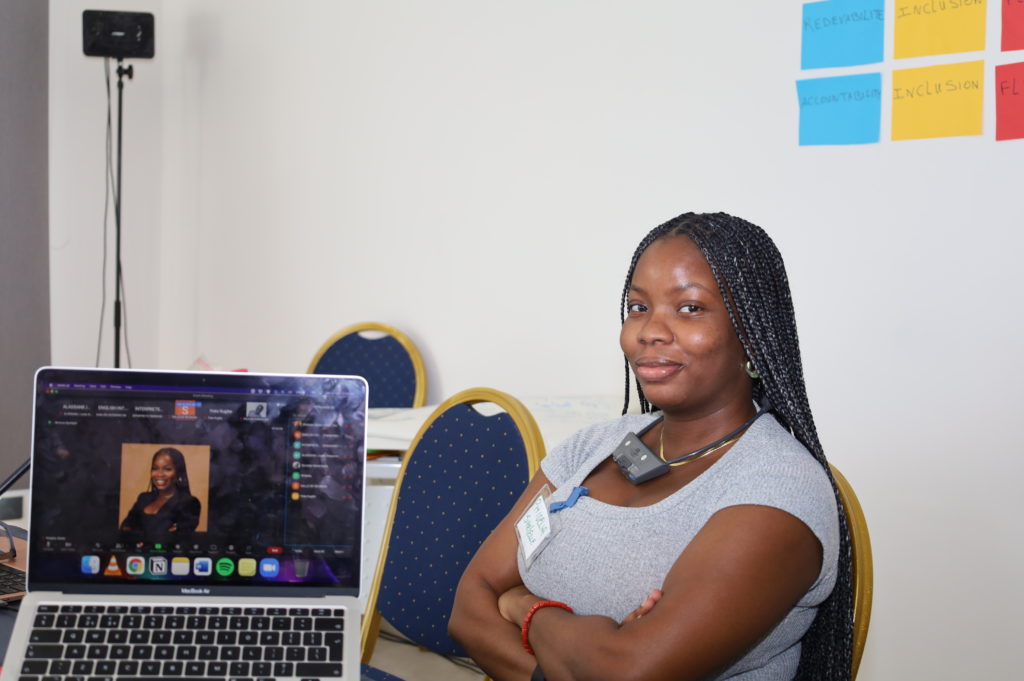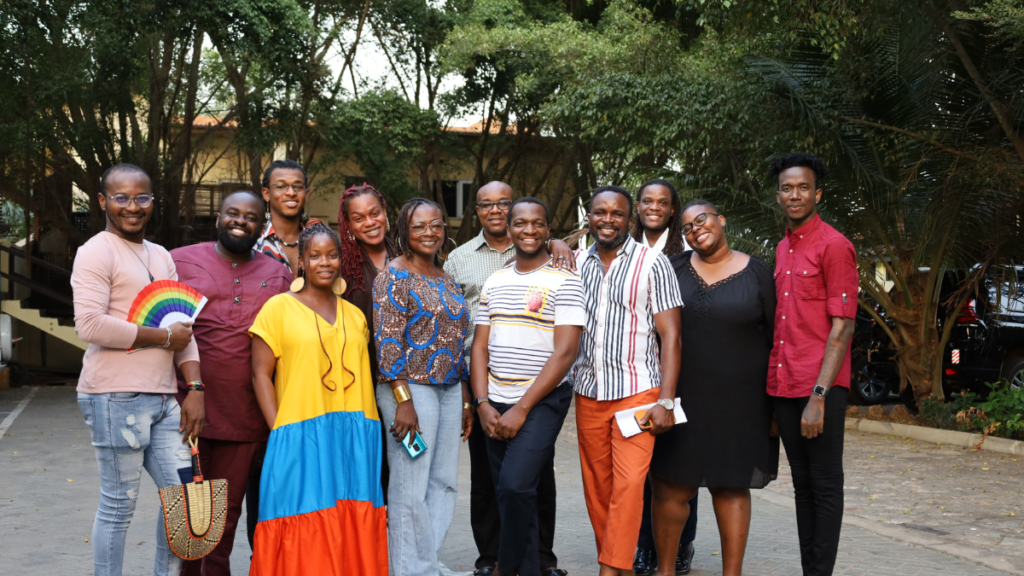
ISDAO is participating in the NGO Committee on the Status of Women (NGO CSW) Forum this March, facilitating three parallel sessions in collaboration with UHAI - one virtual and two in-person sessions. The NGO CSW is the civil society side of the United Nations Commission on the Status of Women (UN CSW) forum.
But first, what is the UN CSW?
The United Nations Commission on the Status of Women (UN CSW) is the world's main policy-making international body dedicated exclusively to the promotion of gender equality and the advancement of women. It is part of the United Nations and works to promote the political, economic, civil, social, and educational rights of women.
Each year, the UN CSW Forum is held for two weeks in New York and provides an opportunity for UN entities, civil society organizations, and UN member states to review the progress in promoting gender equality, identify challenges, set global standards, and define policies for the advancement of women worldwide. At the end of the forum, the Commission adopts agreed conclusions, guiding the action of UN member states for the years to come. Each year, the commission focuses on specific gender equality themes organized into priority and review themes.
2023 Priority theme: Innovation and technological change, and education in the digital age to achieve gender equality and empowerment of all women and girls.
2023 Review Theme: Challenges and opportunities in achieving gender equality and empowerment of rural women and girls (agreed conclusions of the sixty-second session)
Okay, what is the NGO CSW Forum?
The NGO Forum of the Commission on the Status of Women (NGO CSW) is the civil society side of the United Nations (UN) Commission on the Status of Women (CSW). Consisting of hundreds of events throughout two weeks, the Forum runs parallel to the official UN CSW forum taking place at the United Nations Headquarters. NGO CSW is a gathering of civil society actors that allows organizations and activists without the required Economic and Social Council (ECOSOC) accreditation or UN pass to participate in the UN CSW, to still engage in the CSW process. The NGO CSW consists of more than 800 events dedicated to sharing experiences and information on grassroots efforts, advocacy, and initiatives for the empowerment of women and girls.
Differences between UN CSW and NGO CSW forum
NGO CSW forum:
- It is organized by NGO CSW/NY, a civil society organization
- Parallel events are organized by civil society organizations through an open application system
- It is a Civil Society forum (not part of the formal UN system)
- It is not necessary to be accredited by ECOSOC to participate.
UN CSW:
- It is organized by UN Women, an official UN agency
- It is an official United Nations commission
- It is necessary to be accredited by ECOSOC to attend
- Parallel events are organized by Member States, UN agencies, and ECOSOC-accredited NGOs
Reflection: Why is ISDAO participating in NGO CSW 67?
The NGO CSW forum is a unique space for learning, experience and information sharing, and networking on gender equality and rights issues. It is one of the key spaces for civil society organizations from around the world engaged around questions of gender justice.
Historically, the UN CSW has provided platforms for conversations around a range of issues that resonate closely with our work, such as sexual and reproductive health and rights (SRHR), gender-based violence, and economic opportunity. As an activist-led and feminist fund, our work contributes to the field, especially as we are supporting the leadership and organizing of activists seeking to advance gender justice in West Africa. The discussions that happen at the UN CSW forum, the agreements that come out of this space, and the advocacy engagement that takes place both at the UN CSW forum and the NGO CSW Forum are relevant - and have a potential impact on ISDAO’s work and the work of our partners.
Our participation in the NGO CSW forum is first and foremost about learning and understanding key global advocacy spaces focused on addressing emerging issues in the struggle for gender equality. Our communities have often focused on global advocacy spaces related to HIV/AIDS, and while we believe that this remains important - we strongly believe that we need to engage in and understand other spaces connected to our vision of a more just and inclusive West Africa.
We recognize that too often spaces such as CSW are not very inclusive of - and can sometimes be unsafe for - communities that should be a part of the discussion, including (but not limited to) LBQ women, trans persons, intersex persons, and sex workers - communities that we work directly with. We know the importance of being in the room and not being invisibilized in gender equality and rights conversation. We are also participating to learn, network, and identify opportunities to be connected and in solidarity with other struggles within feminist movements.
Our participation is also part of a process of visibility and amplification of the work, voices, and commitments of our partners in West Africa; and our dedication to ensuring their connection to and inclusion in global movements and spaces.
Our sessions
Session #1 (virtual)
“WE. WOMEN. WEBACTIVISTS” - Principles, Outcomes, and Perspectives of Feminist Digital Activism for Gender Equality and the Empowerment of Women and Girls.
In the context of COVID-19, resource scarcity, and the closure of civic spaces for organizing that is often on the margins (including queer, trans, intersex, and non-binary women-led organizing, and sex worker organizing) is increasingly taking place online. Digital spaces also offer opportunities to break isolation, change popular narratives, and build movements. Issue groups, blogs, vlogs, podcasts, influencers, web activists and digital forums are flourishing on platforms that are increasingly transforming the face of feminist engagement. How do these new forms of engagement contribute to inclusion in a West and East African context characterized by limited literacy and digital access? How do they connect people living in rural areas across countries and regions? What are the benefits, drawbacks and limitations? This session will feature several voices from West, East and Central Africa to paint a picture of feminist digital activism in this context.
Date: Friday, March 10, 2023
Time: 2:00 p.m. GMT (Accra); 3:00 p.m. GMT+1 (Nigeria); 5:00 p.m. EAT (Nairobi); 9:00 a.m. EST (New York)
Location: ZOOM
Registration link: bit.ly/webactivists
Session #2 (In person)
“WHO IS AFRAID OF GENDER?” - Reality and Prospects of “SRHR for All” in Contexts of Increasing Gender Opposition.
Anti-gender opposition movements are spreading like wildfire across Africa. Although the LGBTQI community is often the banner of their struggle, their discourse is increasingly undermining women's rights gains, particularly around gender equality, comprehensive sex education, reproductive rights and so on. In 2022, ISDAO, QAYN and a team of regional consultants conducted a study on anti-gender movements to understand their manifestation and impact in West Africa. We will present the results of this study and facilitate a discussion with other African feminist and women's rights activists on the implications of these movements on our ability to advance "SRHR for All".
Date: Monday March 13, 2023
Time: 10:30 AM EDT (New York)
Venue: Salvation Army Auditorium
Session #3 (In person)
“BAD WOMEN, WAITING AT THE GATE” - Challenges, Successes, and Learnings of Inclusion and Inclusivity of Lesbian, Transgender, Bisexual, Sex Workers, Queer, and Rural Women to Women's and Feminist Movements
The intersectionality of gender equality struggles is generally a shared principle. However, its manifestation in terms of inclusion and inclusiveness of movements and spaces is only sometimes a reality. In West and East Africa, it is still difficult for lesbian, bisexual, trans, rural, sex worker, and queer women's communities to integrate into women's and feminist organizations and spaces. Through this parallel session, we want to create a framework for learning and sharing experiences between organizations that have been able to succeed in the challenge of inclusion, those for whom this is still a challenge, and the “Bad Women” (LBTQ women, sex workers, rural women, etc.)
Date: Tuesday, March 14, 2023
Time: 6:15 p.m. EDT (New York time)
Location: 10th floor, Church Center of the United Nations (CCUN)
How can you take part in the NGO CSW and ISDAO’s sessions?
- Register to attend our virtual parallel event on March 10 using this link
- Will you be in New York for the NGO CSW and/or the UN CSW? You can attend our in-person sessions on March 13 and 14.
- Sign up on the NGO CSW portal to see all the events and attend sessions that interest you
Further reading
Beijing Declaration | Beijing+5 Declaration
Protocol to the African Charter on Human and Peoples Rights on the Rights of Women (The Maputo Protocol)

